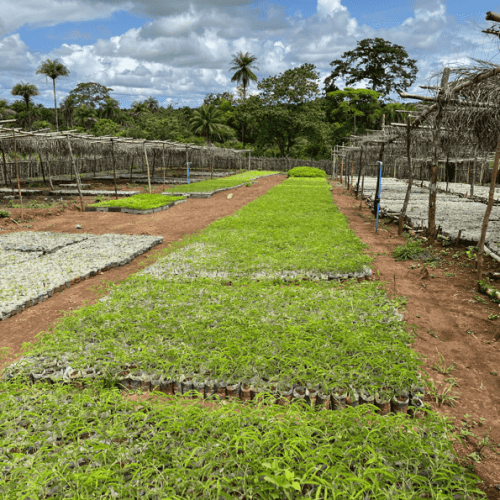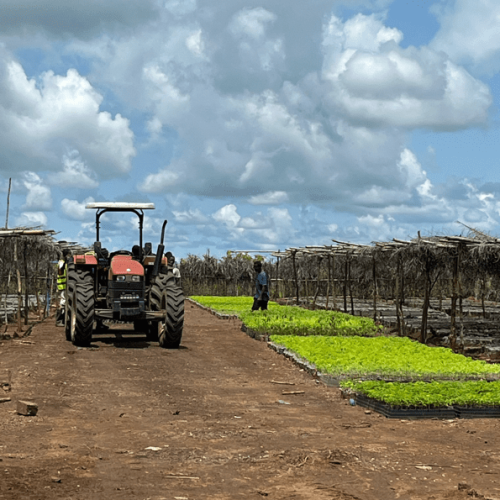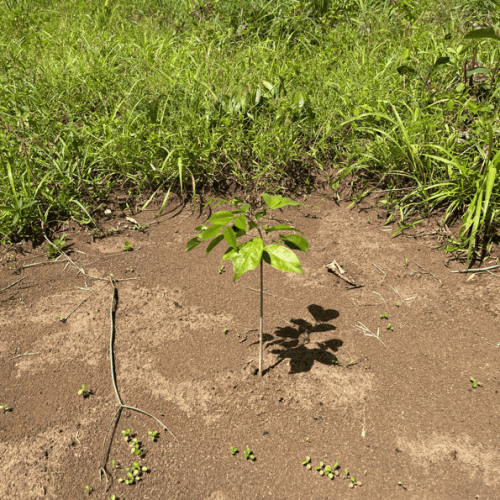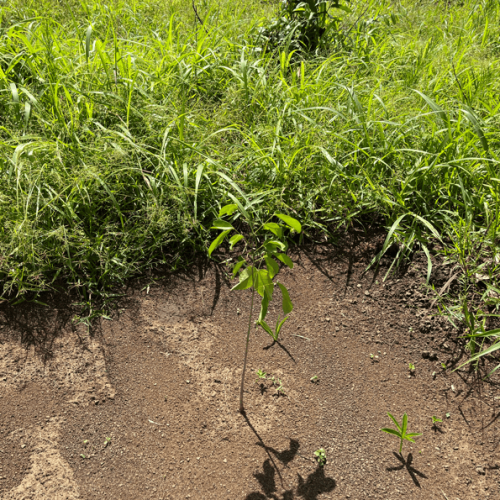Case Study


Case Study
- The Rewilding Company is at various stages with projects in Sierra Leone. Those being:
Terrestrial reforestation – Most advanced with trees planted and PDD approaching finalization. - Mangrove restoration – Trial plots and draft PDD stage
- Mangrove conservation – Feasibility stage
- Terrestrial conservation – Very early stage
Terrestrial reforestation:
This is the most advanced project with pre-feasibility, feasibility, draft PDD and near final CCB PDD completed. Some Landowner Agreements have been concluded and lease agreement will be concluded for the first phase area soon, through a comprehensive Participatory Mapping and FPIC process.
In 2022 200ha of indigenous species of seedlings were planted and in 2023 up to a further 1,000ha will be planted, some of these seedlings reared in an own nursery.
As part of the assurance process the Rewilding Company makes use of technology designed and developed by BEXT360, Carbon Done and Tree Counter:
BEXT360 is an application based product that allows every planted tree to be geolocated and then monitored as it grows. Together with the other technologies mentioned, carbon sequestered per tree can be accurately measured at any stage of its development. This is critical for the validation and eventual verification of carbon credits to be traded through Verra.


Practically what this means is that each planted seedling is capture with regards:
- Date of planting
- Species
- Location
- Photographed
- Planting conditions Landowner detail
- Etc.
- This is then repeated as ground truthing in future years as required.
Projects explanation:
The Rewilding Company is a project developer based in Sierra Leone that develops nature based carbon projects. The company employs local expertise to manage the projects. These include specialists in the fields of:
- Silviculture
- Nurseries
- Seed collection
- Community engagement
- Land surveying
- Carbon markets
- Finances
- Government engagement
- Forestry
- Biodiversity
- And other required skills, some supplemented internationally.


Funding is sources internationally and deployed locally. Communities benefit significantly in various ways including:
- Lease income on unproductive land
- Employment opportunities. Staff are always employed from local communities.
- A wide range of CDAP initiatives including:
- Education
- Access to clean water
- Agricultural training and input provision
- Efficient energy initiatives like cookstoves
- These initiatives are identified through community engagement and deployed through community involvement.
- Direct benefit sharing
- Community based nursery development
- Locally sources supplies
- And many more secondary benefits
In addition to the community benefits detailed above biodiversity, environmental and climate benefits result from the project as does the Government of Sierra Leone.
